Dir: Rithy Panh. France. 2011. 103mins
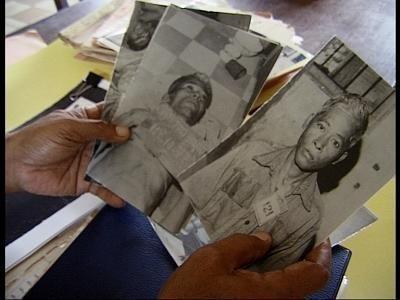
Kang Guek Eav, aka Duch, may not be Adolf Eichmann but he is certainly a monster in his own right. As the former commander of an infamous Khmer Rouge prison in Cambodia, he was personally responsible for the death of at least 12,380 inmates, possibly much more. Put on trial, in 2009 he was condemned to 35 years in jail - he has of course appealed and the final verdict is due to come out in June 2011.
This is an important document to keep and show in future, a lesson not to be forgotten.
Rithy Panh, possibly the best-known Cambodian filmmaker abroad, based in Paris now for many years, has already dedicated a vastly researched documentary in 2002 to the prison camp S21, displaying in detail the crimes perpetrated there by the communist regime.
Now, he decided to allow Duch, who was in charge of the camp from 1975-1979, to have his say. He went back to Cambodia to interview him in prison and out of 300 hours he collected on tapes, with additional documentary footage of the camp at the time, and several testimonies of survivors from that period, he came up with what is essentially an almost two hour-long speech by a man who does not even bother to deny that he is responsible for everything that took place in the S21 death factory.
On the contrary, he simply argues he did it all in the spirit of the regime he has faithfully served - an obedient and dedicated soldier of a revolution which intended to put an end to the corrupt system ruling the country until then and start everything from scratch, for a more equitable and just society.
Though he never actually says the words, “you don’t make omeletes without breaking eggs” in his eyes, all those he tortured and killed were expendable victims on the altars of the new world. He is more than willing to explain in detail that extracting confessions was essential, torturing prisoners was the best way to achieve this end, the point being, of course, not to kill the subjects but make them speak.
That is unless the party leaders preferred - as happened most of the time - termination to imprisonment. In which case, simply to save money and efforts, Duch would first bleed his prisoners to death, after establishing that their blood was safe enough to be used for soldiers fighting on the front, and then, once the prisoners were dead, dispatch their bodies for extermination (“much easier than to send them alive”).
As he goes through the piles of documents that brought to his conviction, he painstakingly details many single operations, but insists that he never committed any crime personally. He may have devised and trained the torturers and executioners on the particular techniques they used (of which he is quite proud) but stayed away, in person, from any bloodshed.
Witnesses who served under him deny these allegations. But he still sticks to his point, adding that in any case, now he has reverted back to the Catholic Church and realises that he has done wrong, but did it for a cause he believed in at the time.
For those who are not familiar with recent Cambodian history, with Pol Pot’s regime and the identity of his faithful minions, Duch’s avalanche of information may be just a little bit too much to swallow.
However, this is an important document to keep and show in future, a lesson not to be forgotten. One of its most striking aspects being that you don’t identify monsters by their horns or tails, because they don’t sport them out for everyone to see. They look just like and other human beings… in Duch’s case just like the mathematics teacher he used to be before he joined the revolution. But they are monsters, nevertheless.
Production companies: CDP, INA, France Televisions, Bophana Productions
Producer: Catherine Dussart
International sales: Films Distribution, www.filmsdistribution.com
Cinematography: Prum Mesar, Rithy Panh
Editors: Marie-Christine Rougerie, Rithy Panh
Music: Marc Marder


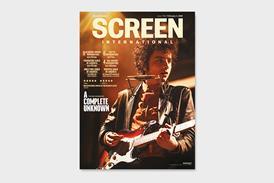

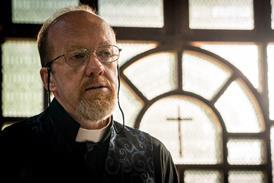

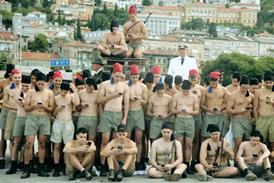
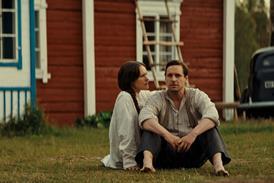






![[L-R clockwise] 'Anora', 'A Complete Unknown', 'Conclave', 'The Apprentice'](https://d1nslcd7m2225b.cloudfront.net/Pictures/274x183/6/5/3/1442653_casting_918941.jpg)

!["Within two weeks [of moving to Northern Ireland] I met Kneecap, the biggest caners in Belfast," says Peppiatt](https://d1nslcd7m2225b.cloudfront.net/Pictures/274x183/5/3/9/1442539_kneecap1creditpeadarogoill_298103.jpg)



